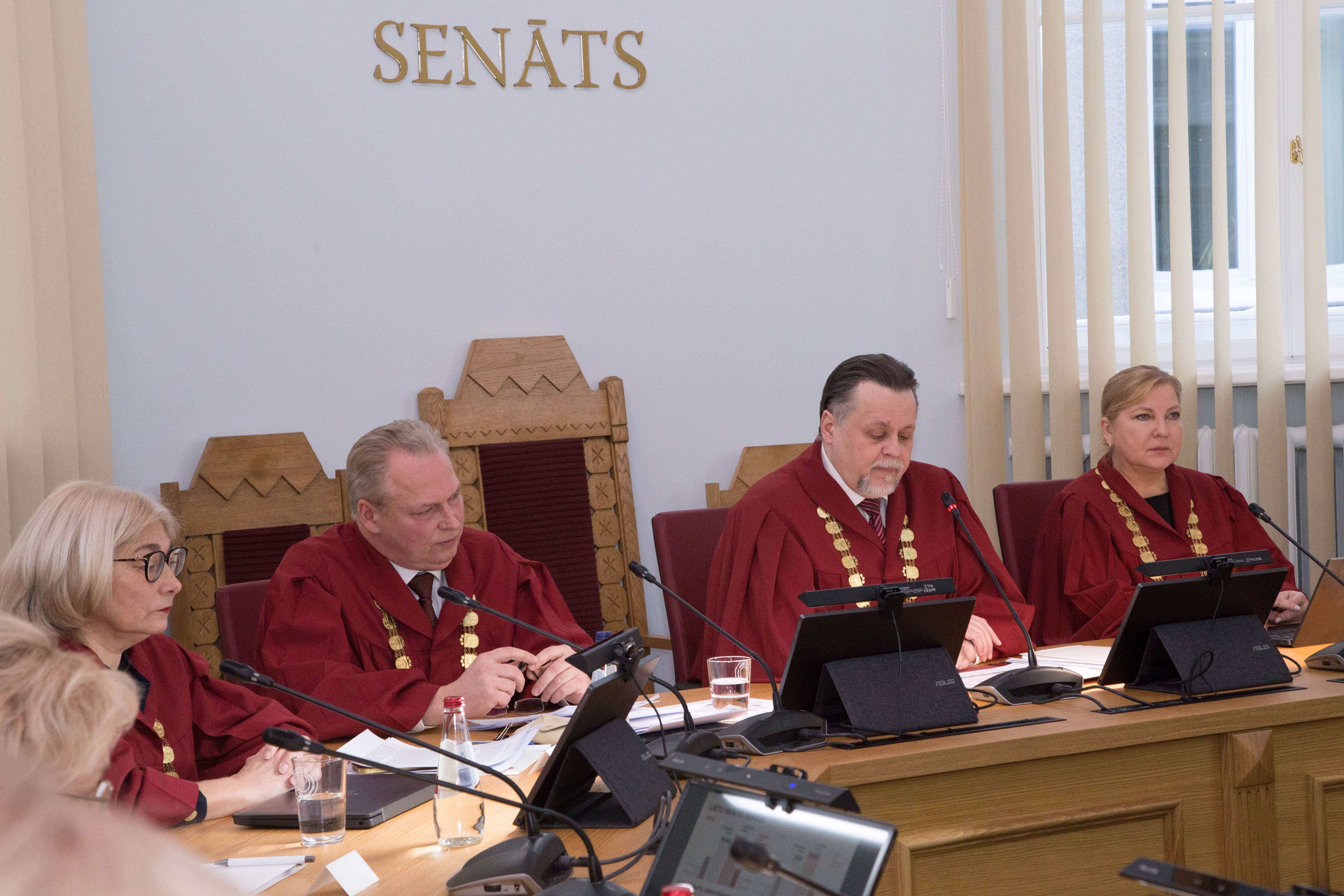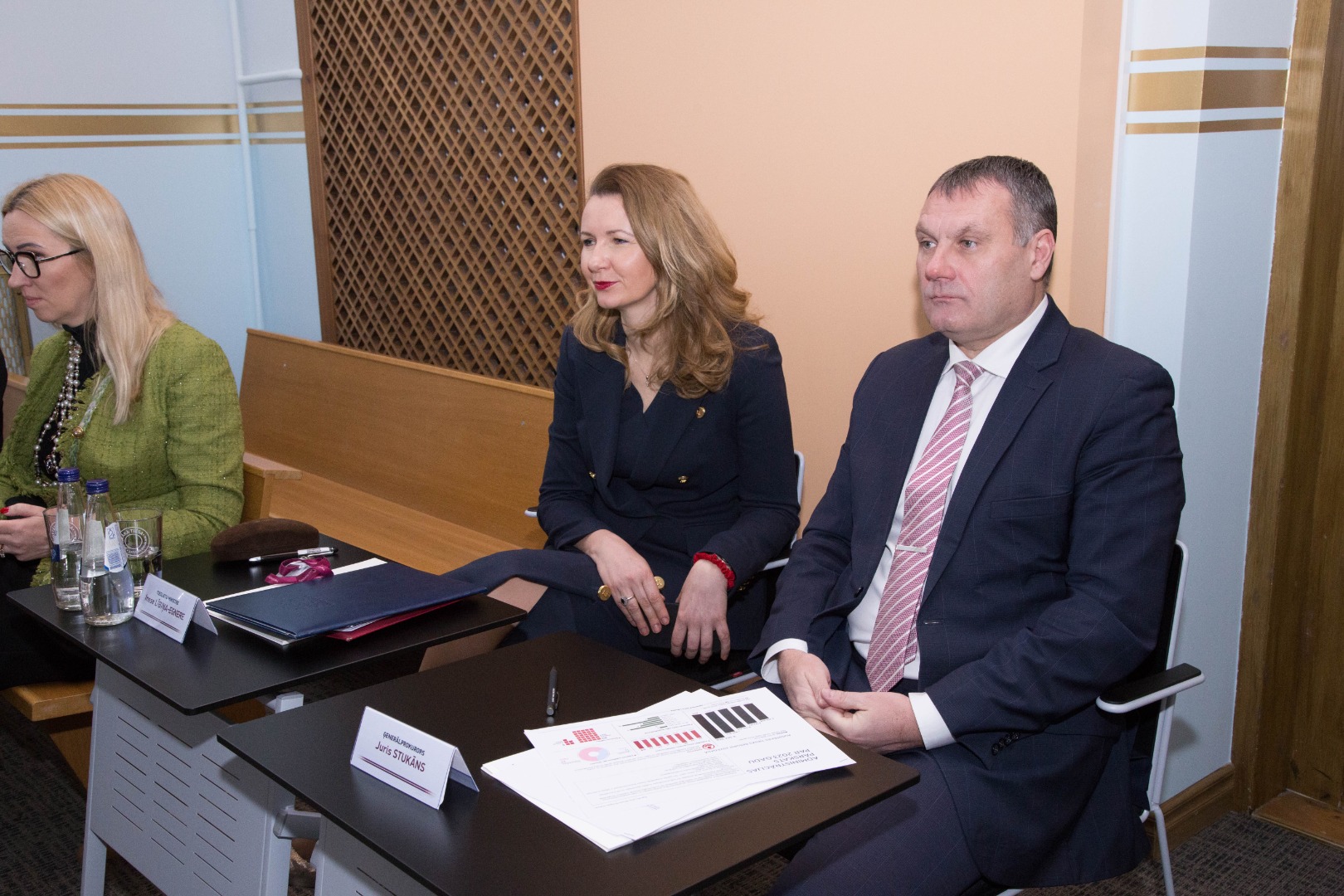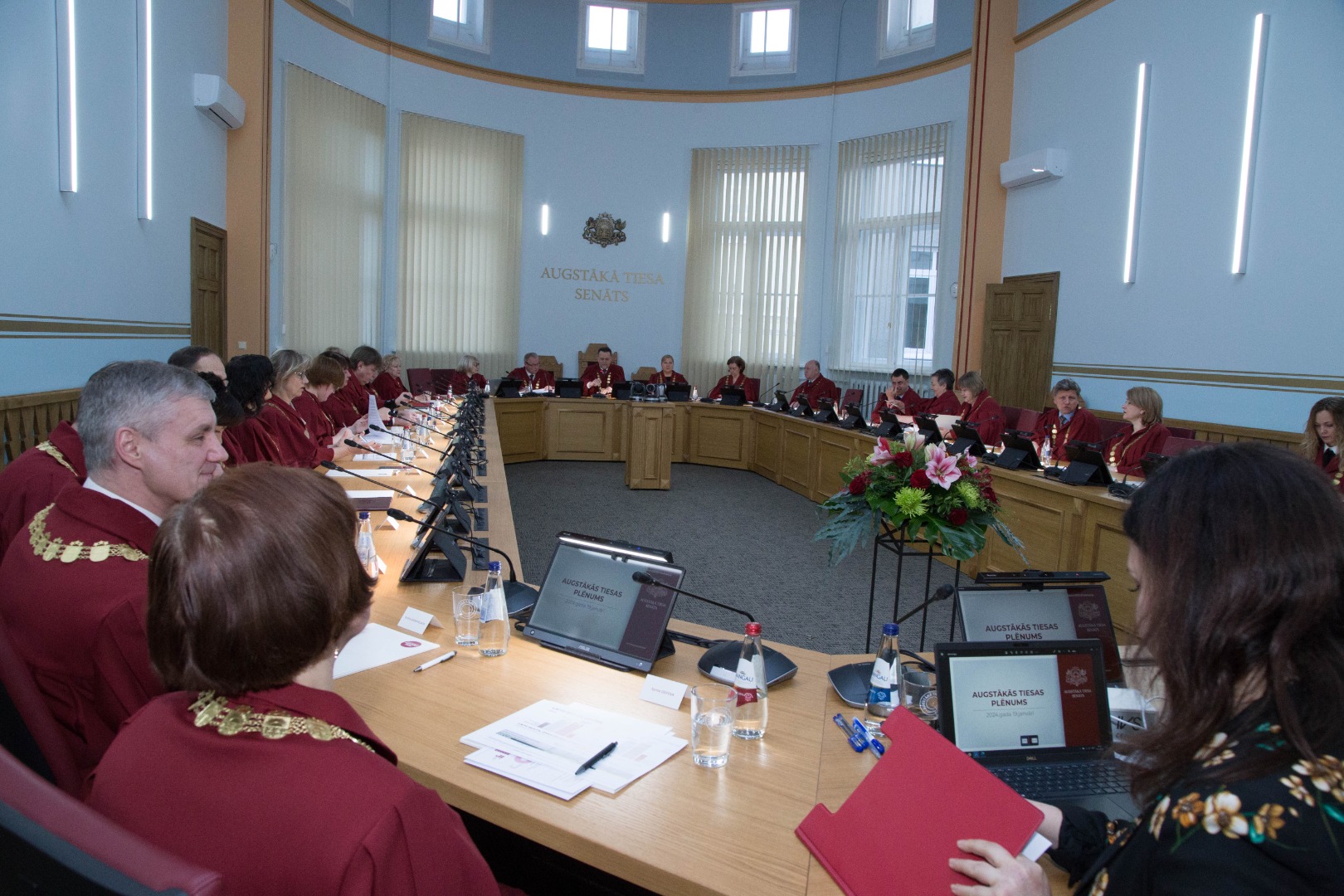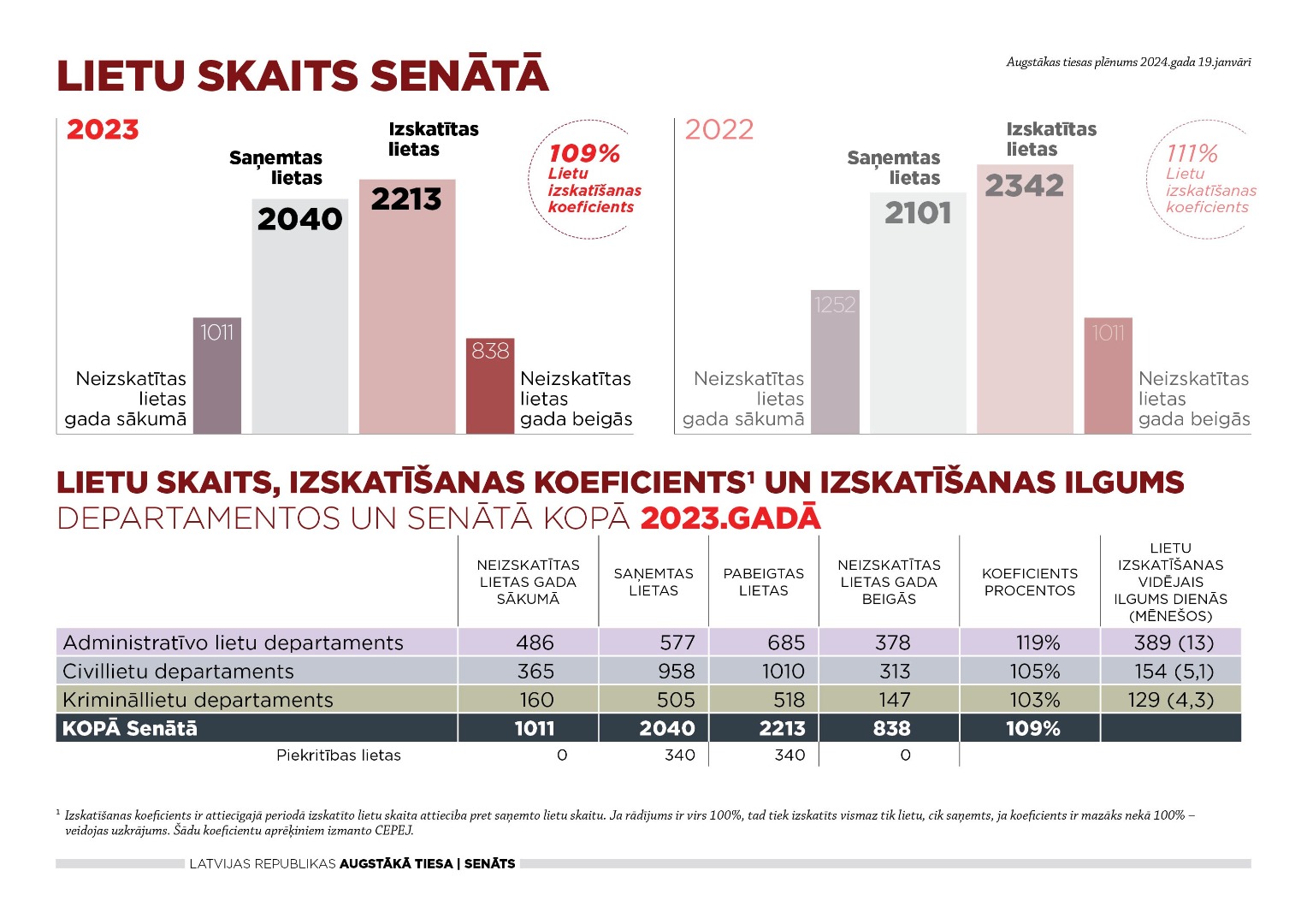19 January, 2024
The leadership of the Senate (from left): Anita Poļakova, the Chair of the Department of Criminal Cases, Normunds Salenieks, the Chair of the Department of Civil Cases, Aigars Strupišs, the President of the Supreme Court, and Veronika Krūmiņa, the Chair of the Department of Administrative Cases
The guests of the Plenary Session – Inese Lībiņa-Egnere, the Minister of Justice, and Juris Stukāns, the Prosecutor General
The Supreme Court has worked efficiently in the past year, however there are reserves for improving the efficiency –Aigars Strupišs, the President of the Supreme Court, stated in the Plenary Session of the Annual Report of the Supreme Court Performance on January 19.
The President marked the most essential facts: the number of pending cases has decreased, the coefficient of the number of cases examined compared to the number of cases received (case-examination ratio) is positive, namely the length of proceedings meets the standards approved by the Judicial Council. The fact that proceedings are longer in the Department of Administrative Cases than in other departments has its own reasons – the suspension of legal proceedings due to appeals to the Constitutional Court and the Court of Justice of the European Union.
The President of the Supreme Court highlighted the established cooperation between Senate’s departments for solving legal issues, which has already become a successful practice and should be continued.
Moreover, the successful cooperation of Senate’s departments with lower courts should be carried on. The idea of Senate’s representatives as messengers of the legal method in courts of first instance should be considered, as it might assist judges in methodically correct preparation of cases for examination, which would also impact the quality of the further court proceedings.
What pertains to Senate's priority action lines this year, the President indicated that the proposals, voiced at the Plenary Session by the Prosecutor General and heads of Senate’s departments, on improving the cassation procedure should be discussed. Particular attention should be paid to causes why cases return in the Senate. "Although such occurrences cannot be completely excluded from the cassation system, actual examples where this has happened 3, 4 and even 5 times must be analyzed and appropriate corrective measures have to be taken," said Aigars Strupišs.
The discussion about limits of cassation and appeal and the interpretation of legal provisions on the competence of the cassation court should be continued. It is also necessary to analyze how the guidelines for the preparation of cassation complaints developed last year work in practice.
The President praised the senators' involvement in communication about court cases, as such communication is important for ensuring public confidence in the Senate. Projects for public education should also be carried on, thus encouraging understanding of the position of a judge and making it attractive for the career development of the new generation.
Furthermore, the Senate's performance will be evaluated by the survey of court clients, which has already begun. This could be an important tool for improving the work of the Supreme Court.
On January 19, the Plenary Session or the general meeting of the Supreme Court senators evaluated the performance of the Supreme Court in 2023. The work of the structural units was analyzed by chairs of Senate’s departments and by the chair of the Disciplinary Court. Prosecutor General Juris Stukāns and Minister of Justice Inese Lībiņa-Egnere also addressed the Plenary Session. All materials of the Plenary Session will be published in the next issue of the Supreme Court Bulletin.
Information prepared by
Rasma Zvejniece, the Head of the Division of Communication of the Supreme Court
E-mail: rasma.zvejniece@at.gov.lv, telephone: +371 67020396, +371 286522





